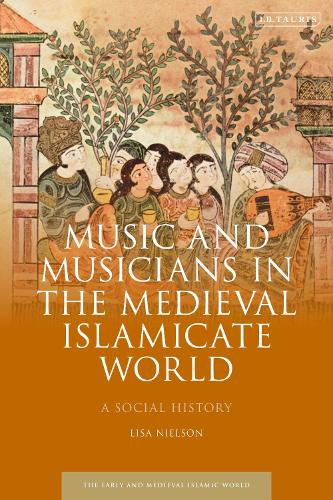
Music and Musicians in the Medieval Islamicate World: A Social History
(Hardback)
Available Formats
Publishing Details
Music and Musicians in the Medieval Islamicate World: A Social History
By (Author) Lisa Nielson
Bloomsbury Publishing PLC
I.B. Tauris
15th July 2021
United Kingdom
Classifications
Tertiary Education
Non Fiction
Social groups: religious groups and communities
Art music, orchestral and formal music
780.917670902
Physical Properties
Hardback
296
Width 164mm, Height 238mm, Spine 24mm
580g
Description
During the early medieval Islamicate period (8001400 CE), discourses concerned with music and musicians were wide-ranging and contentious, and expressed in works on music theory and philosophy as well as literature and poetry. But in spite of attempts by influential scholars and political leaders to limit or control musical expression, music and sound permeated all layers of the social structure. Lisa Nielson here presents a rich social history of music, musicianship and the role of musicians in the early Islamicate era. Focusing primarily on Damascus, Baghdad and Jerusalem, Lisa Nielson draws on a wide variety of textual sources written for and about musicians and their professional/private environments including chronicles, literary sources, memoirs and musical treatises as well as the disciplinary approaches of musicology to offer insights into musical performances and the lives of musicians. In the process, the book sheds light onto the dynamics of medieval Islamicate courts, as well as how slavery, gender, status and religion intersected with music in courtly life. It will appeal to scholars of the Islamicate world and historical musicologists.
Reviews
"A rich exploration of the social and religious contexts of music-making in the medieval Islamic world. Nielson weaves together issues of gender, ethnicity, social class, and religion to provide a readable and accessible survey of the complex interaction of these forces and how they affected musical culture. A recommended read for scholars and students of the medieval Middle East." -- Dwight F. Reynolds, University of California, Santa Barbara, USA
This fascinating book offers a remarkable new insight in the role of music and musicians at the courts of the caliphs in the medieval Islamic world. It sketches a social history of the qiyan, the singing slave girls, and their male counterparts, the mukhannathun, or effeminate musicians, focusing on their socio-cultural position: their ethnical background, sexual relationships, patronage, skills, and career development. -- Anne, van Oostrum, University of Amsterdam, Netherlands
Author Bio
Lisa Nielson is an Anisfield-Wolf Fellow and Lecturer in the Department of Music at Case Western Reserve University, Cleveland, USA. . She received her PhD from the University of Maine at Orono, USA and holds a bachelors and masters degree in music performance and pedagogy.
